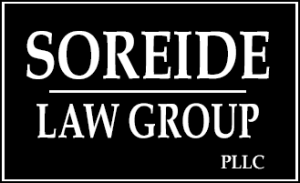Florida Bar Character and Fitness Hearing – How Should I Defend Myself in a Formal Hearing?
So the investigative character and fitness hearing before the Florida Board of Bar Examiners did not go as planned. You have now been served with Specifications and have to go to a “Formal Hearing”. You may ask yourself wasn’t I just at a formal hearing and what is the difference between a Formal and Investigative Hearing. An Investigative Hearing before the Florida Board of Bar Examiners is merely an investigation even though they ask you questions under oath and are creating a transcript of the meeting.
Although an investigative hearing can feel pretty formal in form and function, there are very few rules of evidence and limited objections can be made at the investigative hearing. The Formal Hearing however, has a five member Panel and there is actually a Board of Bar Examiners defense attorney there making arguments against you to keep you from being admitted. The 5 member, as opposed to 3 member panel which you already have seen, is far more passive and they let the lawyers present their respective cases. At the Formal Hearing there are opening arguments from both sides, witnesses called, rebuttal witnesses and closing statements. Evidentiary objections are much more common and speaking objections to the form of questions are common.
With that background the question typically to my law firm, Soreide Law Group, is what do we do and how do we defend this? You must and I mean MUST raise the affirmative defense of rehabilitation or you waive it. That means you can’t offer and evidence or mitigation or character witnesses explaining how you have changed and the events at issue are all “in the past”. This is an acceptable defense but I find all too frequently, clients (usually speaking to other counsel) are all too eager to fall on their own sword and just go in with hat in hand and beg for forgiveness. Sometimes this is necessary but that shouldn’t be your first option.
What Do I Do If I Find Myself In a Formal Bar Hearing?
Sometimes the investigative hearing panel gets it wrong and you shouldn’t be there. There have been multiple Formal Hearings where we straight out deny the specifications (and explain why as is required) and have actually had the Board of Bar Examiners agree with us and rule in our favor. What is really important to note after reading this is don’t go in thinking the Panel is just there to punish you because this is a new Panel (the first 3 Board Members are not allowed to sit on the Panel again) and not all Board members agree.
A well thought out defense might actually be in your best interest as long as it is factual and presented respectfully that may be your best shot for not having a denial or a lengthy delay to getting your Bar Card. More importantly talk to experience legal counsel. The hearings rotate between 6-8 geographic locations so look to hire someone that is experienced because most anyone you hire including you is probably going to have to travel. If anyone has any questions about this article or a character and fitness hearing before the Florida Board of Bar Examiners call (888) 760-6552 and speak with Florida Board of Bar Examiners Defense Attorney Lars Soreide, Esq.



